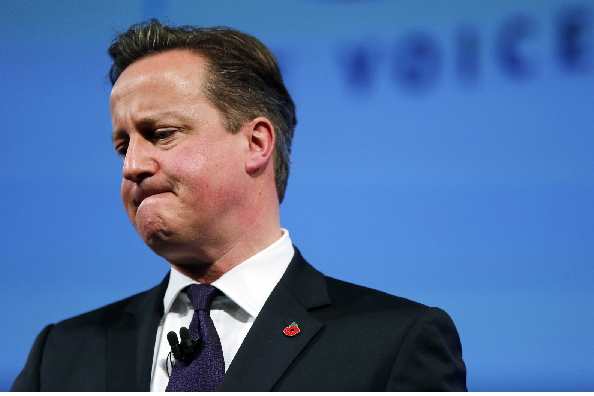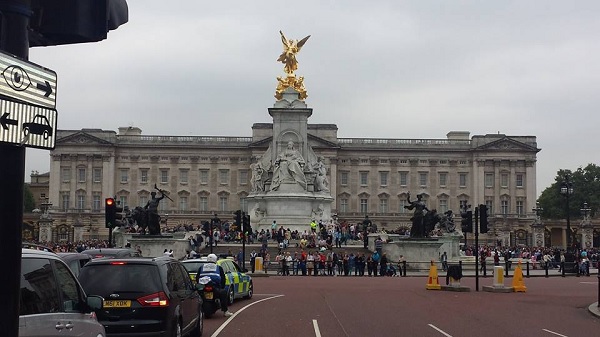
Britain votes to exit EU; leaves world, markets reeling
 London/Brussels:(IANS) Britain did the unthinkable as it voted to quit the European Union after 43 years of membership, throwing the world markets in a tailspin and leaving European leaders worried over how to stem a rising Eurosceptic tide. Prime Minister David Cameron, who had strongly backed the “Remain” vote, said he was quitting.
London/Brussels:(IANS) Britain did the unthinkable as it voted to quit the European Union after 43 years of membership, throwing the world markets in a tailspin and leaving European leaders worried over how to stem a rising Eurosceptic tide. Prime Minister David Cameron, who had strongly backed the “Remain” vote, said he was quitting.
The European Union’s top leaders on Friday said they expect the UK to act on its momentous vote to leave the union “as soon as possible, however painful that process may be” and that there will be “no renegotiation”.
Britons voted 51.9 per cent for Brexit against 48.1 per cent of ‘Remain’ vote in a historic referendum on Thursday.
Britain joined the European Union on January 1 in 1973.
The pound sterling fell to its lowest level against the US dollar since 1985 — and the euro took a hit too.
England and Wales voted strongly to exit while London, Scotland and Northern Ireland backed the “Remain” vote. UK Independence Party leader Nigel Farage, who had been campaigning for 20 long years to dump the EU, called Friday result UK’s “Independence Day”.
A grim looking Cameron admitted he had lost the battle and would step down by October.
“The British people have decided to follow another path. So they need a new prime minister,” he said in a televised statement outside 10 Downing Street, the prime minister’s official residence.
Farage told cheering supporters that “this will be a victory for ordinary people, for decent people”.
Britain will be the first country to leave the 28-member EU. The process could take as long as two years after effecting article 50 of the Lisbon treaty, which is effectively Britain’s formal letter of resignation.
The presidents of the European council, commission and parliament — Donald Tusk, Jean-Claude Juncker and Martin Schulz, respectively — and Mark Rutte, the prime minister of the Netherlands which holds the EU’s rotating presidency, said any delay in Britain’s exit would “unnecessarily prolong uncertainty”.
After emergency talks in Brussels, the four said they regretted, but respected Britain’s decision.
“This is an unprecedented situation, but we are united in our response,” they said in a joint statement.
German chancellor Angela Merkel expressed “great regret” at Britain’s decision, but said the EU should not draw “quick and simple conclusions” that might create new and deeper divisions. The union’s foundation was “the idea of peace”, she said.
French president François Hollande in Paris said he “profoundly regrets” the Brexit vote but that the EU now had to make changes.
Hollande said the vote would put Europe to the test: “To move forward, Europe cannot act as before.”
Martin Schulz said he would speak to Merkel about “how to avoid a chain reaction” of other EU states following Britain.
“The chain reaction being celebrated everywhere now by Eurosceptics won’t happen,” he said.
The EU was the world’s biggest single market and “Britain has just cut its ties with that market. That’ll have consequences, and I don’t believe other countries will be encouraged to follow that dangerous path,” he said.
Tusk said the EU’s 27 remaining members would meet next week to assess their future without Britain,
US President Barack Obama said he respected the decision of Britons and reassured them that their special relationship with the US will remain.
“The people of the United Kingdom have spoken, and we respect their decision,” he said.
Thursday’s turnout in the referendum was 71.8 percent — the highest in a UK-wide vote since 1992. Over 30 million people voted.
he pound dropped 11 per cent to its lowest level in over three decades on Friday, wiping out earlier confidence from exit polls that suggested the ‘Remain’ camp would prevail.
The euro, seen to be vulnerable if Britain voted to leave the EU, was also down 3.2 per cent against the US dollar, which rose strongly against emerging market currencies.
A stunning slide in sterling at 3.40 a.m. saw the currency plummet below $1.40, and 20 minutes later it had breached $1.35 to levels last seen in 1985. An hour later, the pound touched a new low at $1.3224.
The UK vote spurred similar calls to exit the EU.
Dutch Freedom Party leader Geert Wilders said it was the time for a referendum in the Netherlands. “Hurrah for the British! Time for a Dutch referendum!” he tweeted.
Marine Le Pen, the leader of France’s far-right Front National Party, also sought a similar referendum in France. “From #Brexit to #Frexit: It’s now time to import democracy to our country. The French must have the right to choose!” she tweeted.
The Brexit vote has ushered in uncertainty for the 1.3 million Britons living in other European U countries and also the estimated three million non-British EU citizens living in the UK.
The vote rattled Indian financial markets too, shaving over 1,000 points, or 4 per cent, off a key equities index, while pulling the rupee just below the 68 mark to the dollar.
Both Finance Minister Arun Jaitley and Reserve Bank of India Governor Raghuram Rajan sought to calm the markets and said there was no cause for panic as India’s economic fundamentals remained strong and along with other macro indicators.
“We are well prepared to deal with the short and medium term Brexit consequence — strongly committed to our macro-economic framework with focus on stability,” Jaitley tweeted from Beijing.
Rajan said investors need not panic over the rupee. “We are comfortable on foreign exchange reserves. We can use it when necessary.”



